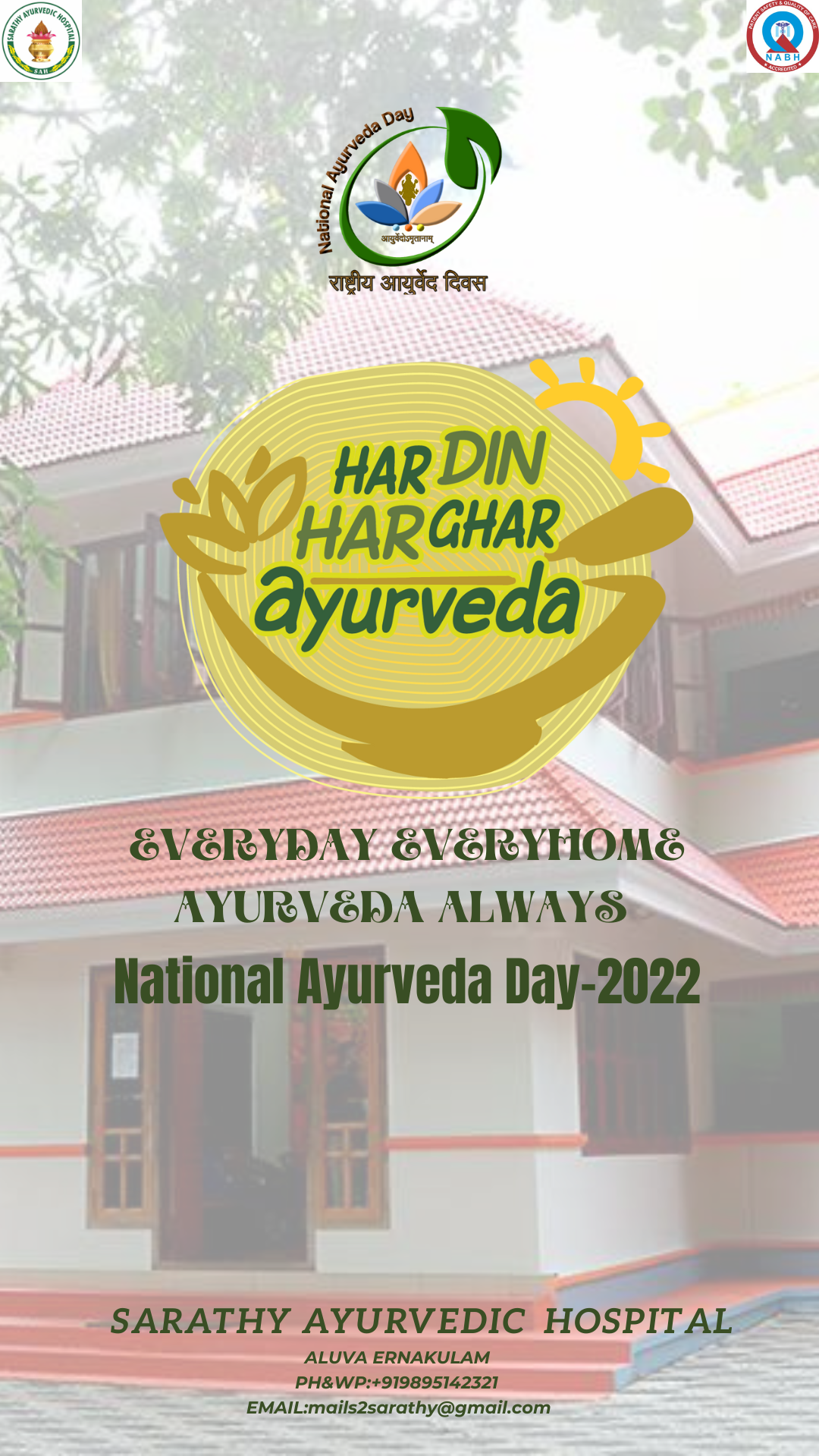Why Ayurveda is special?
Ayurveda is the science of life and the healthcare system that promotes healthy living and a preventive lifestyle. Ayurveda considers every person as an independent entity and a specific combination of Tridoshas. Hence health status of every person is unique so also is healthcare. Even though a protocol exists for a particular mode of treatment or medicine, the same is customized after evaluating the health and other related factors of the user
5 Ps: Unique features of Ayurveda healthcare
- Personalized Healthcare Protocol: Personal profile of the individual including the constitution, age, genetic makeup, living environment, lifestyle, and many other markers are evaluated to design a personalized health protocol for a person.
- Preventive Healthcare: Preventive Healthcare is to establish wellness in society. Ayurveda through its Swasthavrutha principles has always emphasized prevention and has stressed the need for health education on Dinacharya-daily routine, Rutucharya-seasonal regimen, Aahara-healthy food, Nidra-sleep, Vyayama-exercise, Vegadharana-udeerana-addressing the physical and mental natural urges, Sadvrutha-social conduct. The awareness and practice help to reduce the risk factors and hence assure primary prevention. Through health education, early detection of disease and morbidity reduction is possible, and hence secondary prevention is assured. Ayurveda health education and implementation in all homes every day improve the quality of life of both sick and healthy people which is tertiary prevention. “
- Promotive Healthcare: Promotive healthcare is to attain optimum health with optimum immunity and a healthy sound mind. Ayurveda has specialties of Rasayana and Vajeekarana for optimum health and vitality.
- Predictive Healthcare: the knowledge of Prakruthi or analysis of the genetic makeup of a person helps to create a personal health profile and to predict the possible risk factors based on the Dosha status of the person. This helps to design a lifestyle to prevent or mitigate a probable disease occurrence. For example, osteoarthritis is a probability in a Vataprakruthi person which if known earlier can be prevented or mitigated with proper lifestyle modifications and preventive therapies.
- Participatory Healthcare: Ayurveda attributes complete healthcare to the participation and action of four elements of an efficient doctor, effective medicine, an empathetic attendant, and more than all a trusting patient. Persons are to be equipped to be knowledgeable about their healthcare and transform them into expert patients enabled experience of their health status. The world is now encompassing the Ayurveda concepts of “One Health” and “health is an individual responsibility” and it is the responsibility of the Ayurveda community to popularize the same in the society
Why Har Din Har Ghar Ayurveda Every day every home Ayurveda always?
With this motive in 2022, National Ayurveda Day focused on the theme to inculcate Ayurveda every day in every home to benefit the whole population of society. The ‘Har Din Har Ghar Ayurveda’ campaign is just not limited to India, instead aims to reach globally. Ayurveda has been recognized as a healthcare delivery system in about 30 countries and the campaign aims to propagate the benefits of Ayurveda to these countries and beyond.
What are the details of the Har Din Har Ghar Ayurveda campaign?
Initiated on the 7th National Ayurveda Day on the 23rd of October 2022 the campaign is held as a 6-week-long celebration to include more than 5,000 events nationally and globally.
Objectives of 7th Ayurveda Day:
- Promote Ayurveda into the mainstream, globally.
- Explore the potential of Ayurveda to contribute to National health policy and National Health programs
- Reduce the burden of disease and related morbidity and mortality by utilizing the potential of Ayurveda
- Focus on the strengths of Ayurveda and its unique treatment principles
- Start confidence-building measures among the public for adopting Ayurveda for primary health care
- Create Ayurveda awareness among the new generation of youth and promote Ayurveda principles with contemporary adaptations
- To present proof in public and academia of Ayurveda being an evidence-based scientific medical system’
What is the significance of the 7th National Ayurveda day celebration?
Ministry of AYUSH Government of India has set the theme of ‘Har Din Har Ghar Ayurveda’ for National Ayurveda Day 2022 to spread awareness of the importance of adopting Ayurveda in every household ‘for a healthier home, a healthier community, and a healthier nation.’
The aims are to popularize predictive prevention of probable forthcoming diseases, their mitigation and management, and a customized individualistic promotion of better quality of life and better health
The campaign focuses on creating awareness of Ayurveda principles, the body’s constitution, and life forces with a special diet, herbal medicines and therapies, Yoga, Meditation, and other supportive methodologies
Ultimately the goal and significance of Har Din Har Ghar Ayurveda are to move from Ayu to Deeraghayu, Deeraghayu to Sukhayu, and Sukhayu to Hitayu. Enhance longevity, live long comfortably, and live comfortably with optimum health
For more details and queries on Optimum Health and the means to it and to have free counseling on Respiratory Diseases Management in Ayurveda please feel free to
- Talk to Sarathy Ayurvedic Hospital panel doctors
- Mail us at mails2sarathy@gmail.com
- WhatsApp us on +91-9895142321
- Call us on +91-9895142321
- Do visit our social media pages Sarathy Ayurvedic Hospital on Facebook, Instagram, Twitter, and LinkedIn
- SARATHY AYURVEDIC HOSPITAL DOCTORS’ PANEL
-
- Dr. Lathika PK-Specialist in Panchakarma, Stroke Rehabilitation and Ayurveda Cancer Care
- Dr. Valsaladevi K-Specialist in Panchakarma, Child Health, Ayurveda Diet, and Yoga Therapy
- Dr. Karthik K Nandan-Specialist in Conventional Orthopedics, Marma, and Varicose Veins
- Dr. Gayatri S-Specialist in Women Health, Cosmetology, and Fertility SARATHY AYURVEDIC HOSPITAL DOCTORS’ PANEL
- Dr. Ariya VS Resident Medical Officer




